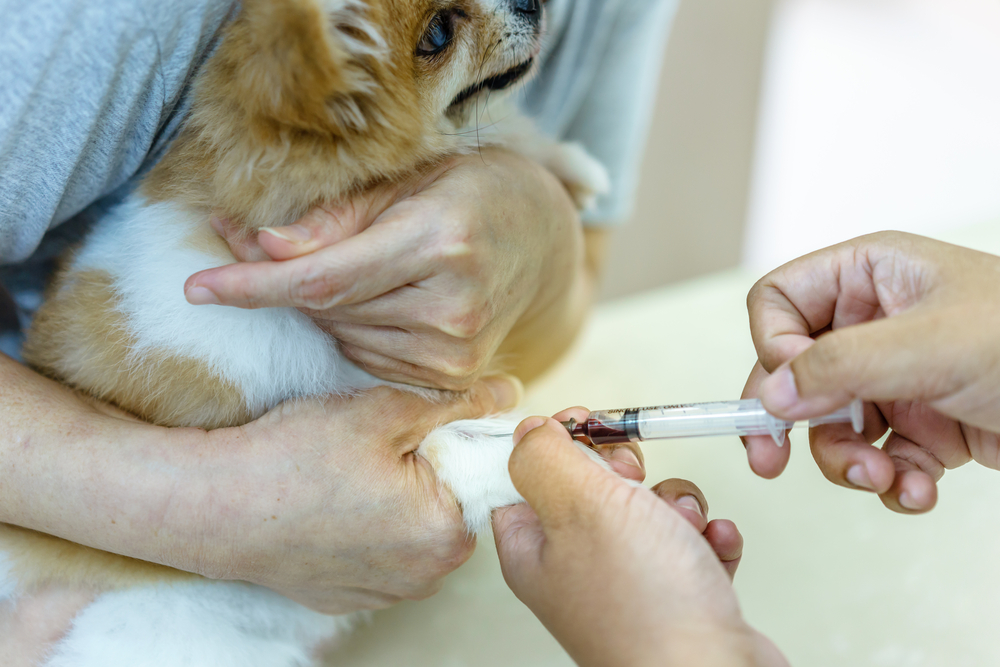
Preventive care is the cornerstone of maintaining your pet's optimal health, and it encompasses a range of measures, from regular check-ups to diagnostic tests. One of the most vital components of preventive care is understanding your pet's blood work, which can provide invaluable insights into their overall health status.
The Importance of Diagnostic Tests in Preventive Care for Pets
Preventive care is not just about keeping your pet comfortable and happy; it's also about safeguarding their long-term health. Diagnostic tests are essential tools that allow your veterinarian to monitor your pet's well-being and detect any underlying conditions or potential issues before they become more severe.
By regularly screening your pet's health through diagnostic tests, you can:
Identify and address health problems early on, when they are often more treatable.
Establish a baseline for your pet's normal values, which can help detect changes over time.
Catch potential issues before they become symptomatic, allowing for proactive management and treatment.
Ensure your pet's overall well-being and provide them with the best possible quality of life.
Regular diagnostic tests are a vital component of preventive care, and they can help you and your veterinarian work together to keep your pet healthy and happy.
Understanding the Significance of Blood Tests for Pets
Blood tests are one of the most common and informative diagnostic tools used in veterinary medicine. These tests provide a comprehensive snapshot of your pet's internal health, allowing your veterinarian to evaluate a wide range of parameters, including organ function, metabolic processes, and the presence of any infections or other abnormalities.
By understanding the significance of your pet's blood work, you can gain valuable insights into their overall health status and work closely with your veterinarian to ensure they receive the best possible care. Blood tests can help detect a wide range of conditions, from diabetes and kidney disease to thyroid imbalances and anemia, enabling early intervention and effective treatment.
How to Interpret Your Pet's Blood Work Results
Interpreting your pet's blood work results can provide valuable insights into their health. Here's a basic guide to understanding the common components of a blood test and what they might indicate:
1. Complete Blood Count (CBC)
Red Blood Cells (RBCs):
High: Dehydration, heart disease, or certain tumors
Low: Anemia, chronic disease, or blood loss
White Blood Cells (WBCs):
High: Infection, inflammation, stress, or certain cancers
Low: Bone marrow issues, severe infection, or certain medications
Platelets:
High: Inflammation, certain diseases, or after spleen removal
Low: Bleeding disorders, autoimmune diseases, or certain medications
Hemoglobin (Hb):
High: Dehydration, lung disease, or heart disease
Low: Anemia, blood loss, or chronic disease
Hematocrit (HCT) or Packed Cell Volume (PCV):
High: Dehydration or polycythemia
Low: Anemia or chronic disease
2. Blood Chemistry Panel
Glucose:
High: Diabetes, stress, or certain medications
Low: Insulin overdose, severe liver disease, or Addison's disease
Blood Urea Nitrogen (BUN) and Creatinine:
High: Kidney disease, dehydration, or high protein diet
Low BUN: Liver disease or malnutrition
Electrolytes (Sodium, Potassium, Chloride, Calcium, Phosphorus):
- Imbalances: Kidney disease, dehydration, hormonal imbalances, or dietary issues
Total Protein:
High: Dehydration, inflammation, or certain cancers
Low: Liver disease, kidney disease, or malnutrition
Albumin:
High: Dehydration
Low: Liver disease, kidney disease, or malnutrition
Globulin:
High: Chronic inflammation, infection, or immune disorders
Low: Immune deficiency or protein loss
Liver Enzymes (ALT, AST, ALP, GGT):
- High: Liver disease, bile duct issues, or certain medications
3. Additional Tests
Thyroid Tests (T4, TSH):
High T4: Hyperthyroidism (common in cats)
Low T4: Hypothyroidism (common in dogs)
Hormonal Tests (Cortisol, ACTH Stimulation Test):
- Imbalances: Cushing's disease (high cortisol) or Addison's disease (low cortisol)
The Role of Your Veterinarian
Based on the results of your pet's blood work, your veterinarian can develop a personalized treatment plan or suggest lifestyle changes to address any health concerns. By interpreting these blood work results, your veterinarian ensures that any health issues are promptly and effectively managed, improving your pet's quality of life and overall well-being.
Maintaining Your Pet’s Health through Regular Blood Tests
Understanding your pet's blood work is a crucial aspect of providing them with comprehensive and proactive healthcare. By regularly monitoring your pet's health through diagnostic tests, you can work closely with your veterinarian to identify potential issues early, implement effective treatment plans, and ensure your furry companion enjoys a long, healthy life.
At True Animal Vet, we understand the importance of proactive healthcare for your pet. We are dedicated to providing comprehensive diagnostic services, including thorough blood work analysis, to ensure your pet's optimal health and well-being. Visit our clinic in The Woodlands, Texas (77381), call (281) 867-5968 or text (281) 916-3282 to schedule your pet's next check-up today.










